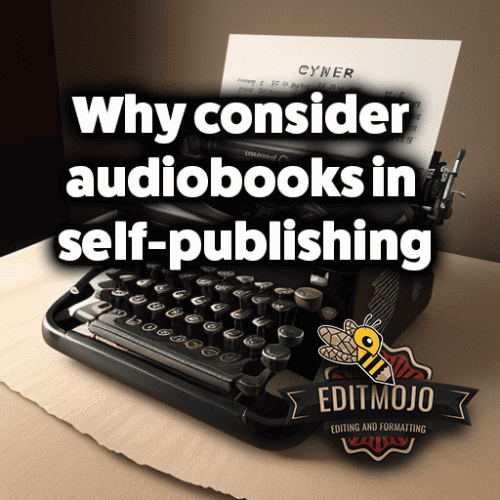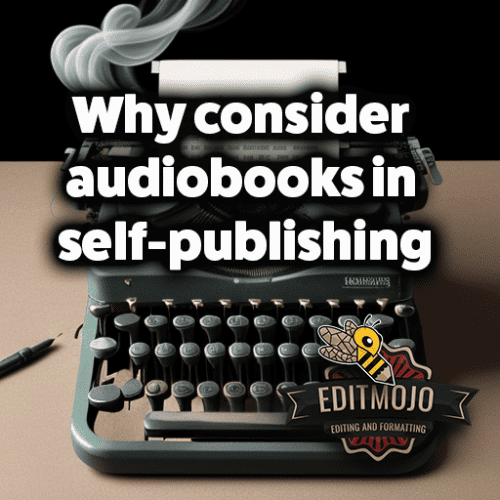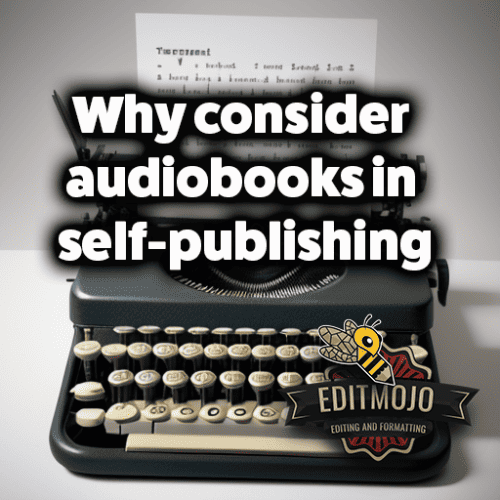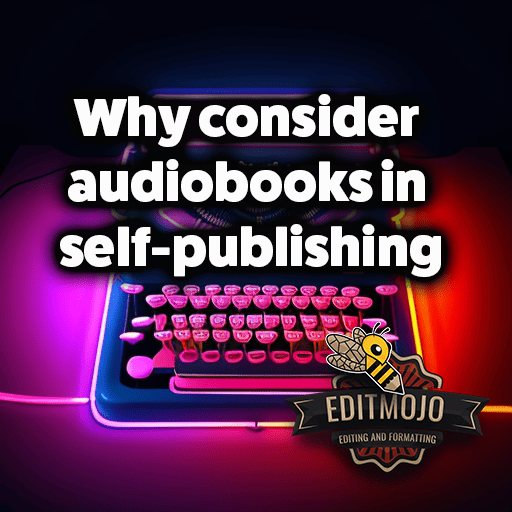Why consider audiobooks in self-publishing
Why consider audiobooks in self-publishing. In the evolving landscape of publishing, a captivating trend is emerging, putting a new spin on how we consume books—audiobooks. Self-publishing has steadily become a popular choice for many authors. It offers complete control over content, design, pricing, and marketing. But what if you could take this control to another level by incorporating audiobooks into your strategy? That’s what we’re here to delve into.
Key Takeaways
| Points | Details |
|---|---|
| Understanding the Market | The global audiobook market is growing rapidly, offering new opportunities for authors. |
| Benefits of Audiobooks | Audiobooks increase accessibility, diversify income streams, expand audience reach, and enhance reader experience. |
| Audiobook Creation Process | This involves script adaptation for audio and choosing between professional or self-narration. |
| Audiobook Production Options | Authors can choose between a DIY approach, hiring a professional, or using audiobook creation platforms. |
| Marketing Your Audiobook | Effective marketing strategies include leveraging social media, cross-promotion, collaborating with influencers or bloggers, and engaging with online audiobook communities. |
| Overcoming Challenges | Authors can overcome potential challenges such as high production costs, quality assurance, complex distribution processes, and competition by careful planning, research, and utilizing the right platforms. |
Understanding the Audiobook Market
The global audiobook market has been experiencing an unprecedented growth spurt over the past few years. According to the Audio Publishers Association, audiobook revenues in the United States alone grew 16% in 2020 from the previous year, marking the 8th consecutive year of double-digit revenue growth. It’s undeniable; people are falling in love with listening to books.
There are countless stories of self-published authors achieving remarkable success with audiobooks. Andy Weir, author of ‘The Martian’, for instance, initially self-published his book and released a free audio version on his website, catching the attention of major publishers and Hollywood. This amplifies the potential of audiobooks as part of a self-publishing strategy.

The Benefits of Audiobooks in Self-Publishing
Increased Accessibility
One of the compelling reasons to consider audiobooks is the increased accessibility they offer. For visually impaired readers or those with dyslexia, audiobooks aren’t just a preference—they’re a necessity. But it’s not just these groups who benefit; there’s an expanding demographic who prefer audio for its convenience. Listening while commuting, working out, or completing household chores allows ‘readers’ to make the most of their time.
Diversifying Income Streams
Self-publishing an audiobook opens up new revenue streams. Platforms like Audible and Scribd operate on subscription models, paying authors a fixed amount or a royalty for each listen. This provides an ongoing income opportunity beyond the initial sale, creating a more sustainable financial model.
Expanding Audience Reach
With audiobooks, authors have the potential to reach a wider audience. Younger generations, growing up in a world surrounded by podcasts and streaming platforms, are more drawn to audiobooks than previous generations. There’s also an opportunity to reach non-readers who might find a deep, well-narrated story more appealing than written words. Finally, with the right translation and narration, audiobooks can reach a global audience, making your book truly universal.
Enhancing Reader Experience
Think about it: A voice can convey emotion, tone, and character in ways that text on a page simply cannot. This enhances the reader’s (or listener’s) experience, making your story more immersive and engaging. Not to mention, the use of sound effects and music can bring an additional dimension to the storytelling.

How to Get Started with Audiobook Self-Publishing
Audiobook Creation Process
Creating an audiobook begins with adapting your script for audio. Then comes the crucial step—narration. Should you hire a professional narrator or self-narrate? It’s a personal choice, heavily dependent on your comfort and skills in voice acting.
Audiobook Production Options
Producing an audiobook can be an intricate process. If you’re tech-savvy, the DIY approach might work for you. It requires sound editing software, a good microphone, and a quiet space to record. Alternatively, you can hire a
professional. Though it may be more costly, it guarantees a polished, high-quality final product. Platforms like ACX provide a marketplace to find professional narrators and producers.
Publishing the Audiobook
Once your audiobook is ready, it’s time to publish. Several platforms offer audiobook distribution, such as Audible, iTunes, and Google Play. Each platform has its own pricing model, so it’s important to research and choose the ones that best align with your goals.
Tips for Marketing Your Audiobook
Marketing your audiobook is as important as producing it. Social media platforms can be harnessed effectively for promotion. Another useful strategy is cross-promotion, where you leverage the existing readership of your print and ebook versions. Collaborations with influencers or bloggers in your genre can also boost visibility. Additionally, participating in online communities of audiobook listeners can provide valuable insights into marketing strategies and reader preferences.
Potential Challenges and How to Overcome Them
As with any venture, there are challenges to consider. Audiobook production can be costly, but there are ways to manage costs effectively, such as using platforms like ACX that offer royalty share deals with narrators. Ensuring quality narration and production can be daunting, but taking time to find the right people for your project or investing in learning the necessary skills can mitigate this. As for distribution, while the process can be complex, leveraging various platforms and understanding their specific requirements will streamline your experience.
Conclusion (Why consider audiobooks in self-publishing)
The world of self-publishing is ever-changing, and the rise of audiobooks is a testament to that. They offer an engaging and immersive experience for listeners, provide accessibility to those unable to read print, and open new avenues for income and outreach for authors. As we gaze into the future, it’s clear that incorporating audiobooks into a self-publishing strategy holds immense potential. As the old saying goes, “The world belongs to those who read… and listen!”

Call to Action (Why consider audiobooks in self-publishing)
Are you a self-published author who’s ventured into the realm of audiobooks? Or maybe you’re still considering it? I’d love to hear your thoughts and experiences. And for those who are intrigued by the possibilities of creating their own audiobook, I encourage you to explore the resources linked throughout this post. The future of self-publishing could very well be heard rather than read, so let’s embark on this audio journey together!
Top Five Questions and Answers
| Questions | Answers |
|---|---|
| Why should authors consider audiobooks in self-publishing? | Audiobooks provide authors with a chance to diversify their income streams, reach a wider audience, enhance reader experience, and increase accessibility of their books. |
| How can an author start with audiobook self-publishing? | The process begins with adapting the script for audio, choosing a narrator (self or professional), and then deciding on the production approach—DIY, hiring a professional, or using a platform like ACX. |
| What are some effective marketing strategies for audiobooks? | Effective marketing strategies include leveraging social media, cross-promoting with print and eBook versions, collaborating with influencers in the same genre, and engaging with online communities of audiobook listeners. |
| How can authors overcome challenges in audiobook self-publishing? | Authors can manage high production costs by using platforms that offer royalty share deals, ensure quality by investing time to find the right professionals or learning the necessary skills, and understand the distribution process by researching and leveraging various platforms. |
| How can audiobooks enhance the reader’s experience? | Audiobooks can bring stories to life through voice acting, conveying emotions, tones, and character nuances that text may not fully capture. Sound effects and music can further enhance the storytelling. |
